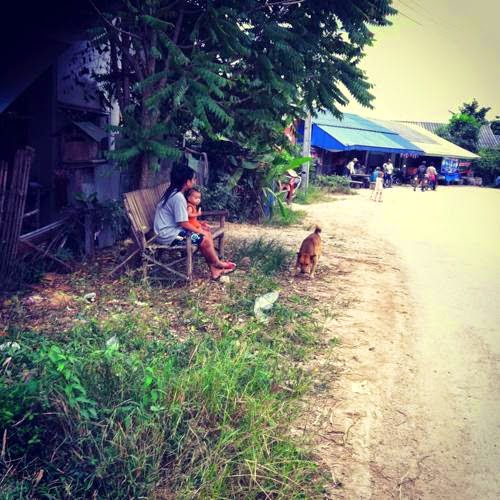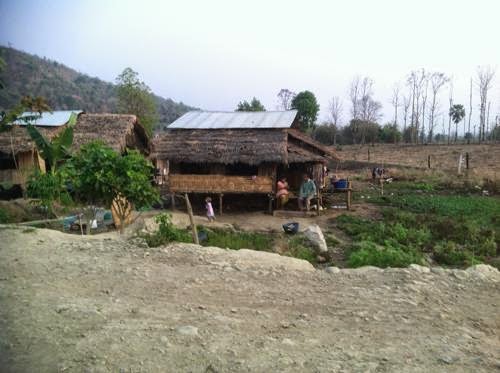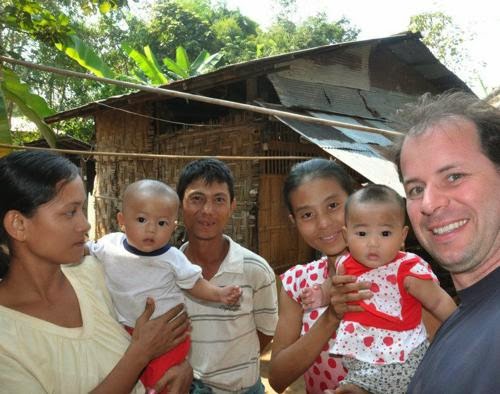I want you to imagine something with me. It will only take a moment.
If you have children, I want you to think of your worst day so far as a parent. Maybe you were impatient and yelled at your children, they cowered in the corner, and your heart broke that they had learned to fear you. Maybe it was the day that you had nothing left in the cupboard and dinner was a lean and meager affair, filled with the refrain of “I’m still hungry. What is this? Why are we eating this?” Maybe it was the day you lost your spouse. Perhaps they died. Perhaps they left you for someone else, someone younger and stronger, who hadn’t grown old and tired with the bearing of children.
Think of the way you sat down, weary, and full of grief, and whispered to yourself, “I can’t do this. I’m so tired. Maybe they would be better off without me.“
Now imagine the next morning Bill Gates and his giant foundation for saving children showed up at your front door and said, “We’re here to help. We know that you can’t raise these children on your own, that’s why we have this state of the art boarding facility. Your children will go to the best private schools, they will golf at country clubs, and play polo. We will teach them programming, business, and the secrets to success, that only rich people know. When we are through with them they will all go to Harvard and become wealthy and successful adults. All you have to do is sign over your rights as a parent, and we’ll take them and give them a wonderful life. You can do whatever you want now. No need to stay here. Go ahead and move to the big city like you were thinking about and get a new job. You can do that now you have no children to support. Maybe it will be better for you.”
What do you do? What, from your current perspective, is the best choice for your children? Raised by Bill Gates, or by you?
This may seem to be a ridiculous scenario to you. No rich guy is going to show up at your door and offer to take your children for you. But here, on the Thai/Burma border, that sort of thing happens every day. Every. single. day.
Here where parents can’t afford to feed their own children, let alone buy them school uniforms, there are half a dozen bright shiny children’s homes, just down the road, all standing in silent condemnation of parent’s ability to provide.
When you live in a one room hut made of bamboo,
when you have no electricity or running water,
when your child plays in the dirt with the dogs while you prepare a meager meal, purchased with wages earned from days of back breaking labor,
when you can’t afford to send your children to any school, let alone a good school,
that big building down the road,
with the electricity and running water,
the wealthy foreigners who care about children who help to fund it,
and the clean shiny uniforms of the children that pass yours on the way to school,
It can start to look like an answer.
They don’t mean to tell parents that they are inadequate, not in so many words. But how can it not be implied? The truth is, many of the nice kind well meaning loving people who staff these places also believe the children are better off in an institution, away from their parents, rather than living in the dirt.
Children’s homes are good business for locals. Some people start a children’s home because they see money in it. It’s sad, but true. Others do it because they care, deeply, and honestly believe it’s better for them to be living in a children’s home than with their parents living in the dirt. But good intentions don’t guarantee good outcomes.
The result is that some parents, on those hard days, they sometimes choose to remove themselves from the picture. They bring their children to the gates of the nearest children’s home, and they kiss them goodbye and walk away. They dry their tears and go to Bangkok to try and get a good job and get ahead, so maybe they can pick those children up again and take them home somewhere that doesn’t have dirt for floors. Or maybe they just leave and start all over again somewhere else.
Their children leave their pillows wet with tears every single night for the first month, and gradually adjust to life amongst dozens of other children. There is no one who thinks they are special, no one who cares about their triumphs and heartaches, no one to cheer them on. They are just one of many.
Why aren’t there more people helping these families get out of the dirt together? Why do we still think that taking poor children away from parents and raising them like cattle is a good idea? Why do so many people romanticize orphanages and work to fund them, but don’t help families?
When will people realize that orphanages create orphans? Victims of both the opportunistic and the well intentioned.
Maybe it will happen when I tell them. Because I used to be one of those people who thought orphanages were a good idea. I once romanticized the idea of an orphanage. I used to want to work in one. But now I know better. Now you know better too. Together we can change the way people think, and work together to pursue a better solution.
Safe places for children to stay are needed, and better than many alternatives. There are children whose parents are in prison, children whose families are abusive or drug addicted, children whose extended family is a grandparent who is infirm. But children’s homes should always be considered a temporary solution, something to fill the gaps while a child’s family is helped, or a foster arrangement is found.
Children’s homes should have careful screening policies, making sure that the children there truly have no other alternative. They should have programs in place that make supporting families a priority, and exhaustive options for biological families before a child is admitted, either through their own organization or by partnering with someone else that fills that role.
This isn’t easy. It’s messy, expensive, and requires a lot of man power and administrative oversight to do it right.
But it’s better. It’s what we need to do.
Would you want your child growing up in an orphanage? NO!
Then what makes it good enough for a stranger’s child?
We realized pretty early on in our orphan care journey that orphanages were not a good long term solution. As we started to research why children here in Thailand ended up in institutional homes, we learned a disturbing truth. Most of the time there are people in a child’s life who would care for them, if they had the means. Some parents are just too poor to feed their own children.
We started looking for ways to strengthen families so children could stay with parents. It was this that gave birth to the self sustaining orphan care model. We wanted to take care of the children in need of care right now, and direct those same resources toward their communities and families, so that we could work ourselves out of a job. We’re working to get the children who were separated from their families simply because of poverty back into their families. This means lifting the whole family up out of the dirt together.
The only way we can change this is if we educate people, both in the west, and impoverished communities. You can help us do that. Start by sharing this post.
Will you join us in caring for, and raising up, families?
Helping families stay together is often as simple as providing economic opportunities for parents, or day time child care so both can work, or partnering with them in business ventures, or providing classes in all sorts of basic life skills; budgeting, disease prevention, nutrition, early childhood development, and prenatal and labor support to help promote bonding.
Right now we’re giving community classes for parents. We’re providing jobs and growth opportunities through businesses we’ve established. In every class we make sure parents know how important they are to their children, how much better off a child is in a family, even a poor family, than in an institution. We just tell them what the research shows. I watch the surprise on their faces, every time I tell them that they matter to their children, that their children need them in order to succeed in life. This is something they did not know. Imagine, not knowing that.
You can reach across oceans and hold the hands of parents here and give them the encouragement they need to succeed. You can help us do that.
Because the way to protect a child is to keep them in a strong, loving family.
Carrien is co-founder of The Charis Project, Family Education Curriculum Developer, and mom of 6.
You can get her free mini-course on Making Your Family More Resilient here.




